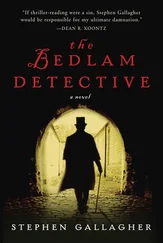She stayed silent for many seconds.
“What?” I asked.
“Ashuriyah is hell,” she said, her face setting like flint. “How do you defeat the devil in his own home?”
The summer before I joined ROTC was California bright and filled with crystal skies. Will came home for a few weeks and kept talking about the time he’d called in an airstrike on the Taliban. Marissa and I decided to give it another try, at least until we went back to our respective campuses in the fall, spending our mornings at the lake and our evenings in friends’ basements.
Her sister Julie was to be married in August. Will, Mom, and I received invitations. Our dad didn’t live in our subdivision anymore, so he didn’t get one. There were rules in Granite Bay.
Julie and Will had never really gotten along, even though they’d gone to school together. Marissa and I liked to joke that the reason for the mutual distaste was their red-blooded lust for each other. “Our kids could be double cousins!” we said. Neither sibling ever laughed with us, but we didn’t care. We had each other.
Despite their history of antipathy, neither Will nor Julie considered themselves unreasonable, something that proved helpful when the groom, Richie Gomez, asked my brother to be a replacement groomsman — something about a Venezuelan cousin having visa issues. Richie and Will had played high school baseball together, so it made some sense, though I harbored cynical thoughts about the groom’s need to prove to the bride’s family that he wasn’t a Chavez-loving socialist, which meant trotting out Will’s dress uniform and shiny medals.
“You’re a fool,” my mom said when I brought that up.
“You’re an idiot,” Marissa said when I brought that up.
The week of the wedding, I stumbled into our kitchen, seeking out the pantry. Will was pacing the linoleum tile floor.
“Scumbag,” he said. “Creep. Coward.”
I asked who he was ranting about.
“Tomas Butkus,” he said. “He’s coming to the wedding.”
It was well-known in Millennial Granite Bay that Julie and Tomas had hooked up on a camping trip, months after she began dating Richie Gomez. Well-known to everyone but Richie. Gossip peddling being gossip peddling, and gossip peddlers being gossip peddlers, the story had swirled around Richie without reaching his ears.
“That was, like, a couple years ago,” I said. “And Julie and Tomas are friends. That’s who weddings are for.”
“No, Jack. You’re wrong.” My potato chip munching rose with his voice, and I took a seat behind the counter. “Weddings are for people who will love and support your marriage. Not just a collection of friends.”
“Then why are you going?”
“That’s not the point. The point — this Lithuanian prick has no honor. He should have respect for her and for Richie, and stay the fuck away.”
“Hmm.” He was speaking so fast that I had a hard time keeping up. I was hungry. And stoned.
He went on to wax eloquent about HONOR. And INTEGRITY. And that lesser-known army value of NOT BEING BALTIC EUROTRASH. It all sounded quite significant and convincing, even to my pond-water mind, but one question lingered. When he finally stopped, it came off my tongue in a deluge of potato chip crumbs.
“Will. Like, why do you care so much?”
He looked at me, wild-eyed. “I don’t. I’m just saying.”
After the weed wore off, I figured out why he cared. The night after he’d graduated West Point, he had proposed to the daughter of a Connecticut senator he met at a Boston bar. She said yes. Some months later my family received a terse, slightly fanatical e-mail saying the engagement was off, the wedding was off, it was all off, that Will had sworn to himself that he’d never compromise and this was proof. He was going to be a man of principle, even if it meant sacrificing his own temporary happiness, because what was happiness in the long run but a silly, stupid emotion that was just a particular pattern of synaptic connections?
We never talked about the e-mail or mentioned it to Will. There wasn’t much to say, other than we were there for him when he needed us.
The wedding ceremony went well. Will was sharp and polished in his dress blues, and though the old, rich white relatives picked at him like vultures, he didn’t seem to mind. My mom patted my arm and told me perhaps I’d had a point earlier.
“Those are the type of men who will keep your brother at war,” she said, her voice both proud and furious. “Not a grunt among them.”
“How do you know that word?” I asked.
“Army moms know lots of words,” she said. Then, after a pause, she smiled. “Navy daughters do, too.”
The minister pronounced them man and wife. Bells clanged and spirits flowed. The world had never seen such joy, we all thought, and we all meant it. The stars were out, the night was calm, and the lakeside breeze blew with peace and joy and all sorts of particular patterns of synaptic connections.
Near the end of the reception, I slow-danced with Marissa. She wasn’t a girl who got done up often, which made her loveliness all the more palpable. In her uniform of a floral, ruffled bridesmaid dress, half drunk on wine, she clung to me, describing our future house, naming our future babies, planning a life together as idyllic as it was ordinary. I beamed, belly full of beer, knowing that sloppy, irresponsible sex awaited. Shouts and screeching chairs suddenly came from behind us, near the bar. We turned that way, same as everyone else. Will was standing over a dazed Tomas, fist clenched.
“Who am I? Who the fuck am I ?” Will said. In that moment, his words almost sounded natural. “I’m an infantry officer. I’m a man with purpose. I’m a man who knows what’s right, what’s wrong, and what you are.”
Tomas had trouble finding his feet, but his friends surrounded my brother and started crowing, chests out, drunken mania gliding through their eyes. I told Marissa that I’d be right back. Then I grabbed a metal chair, pushed into the circle, and told them if they wanted a fair fight, the Brothers Porter could certainly oblige.
Mom polished off her glass of Irish cream and told us to get in the car — she was driving us home just as soon as she thanked Julie and Marissa’s parents for the evening.
We didn’t say anything to one another on the drive home. As I stared out the car window at the streetlights and cul-de-sacs, I decided I wasn’t going to be a man of nothing. I wasn’t going to be a man of the idyll and ordinary. I was going to be the type of man who punched out Baltic Eurotrash at weddings for principle’s sake.
I was going to be a soldier. I was going to be an officer. I was going to be a leader of men.
Then I smiled at Will and patted him on the back. He needed that.
We waited out the afternoon fall storm, the insistent pat-pat-pat of water meeting packed slabs of earth. I stood at a window watching my men teach Rana’s boys poker. They’d gathered in a Stryker to keep dry, but had lowered the ramp to let in air.
“You brought this,” she said from across the hut. “We haven’t had so much rain for years.”
She was teasing. At least I thought she was. I smiled shyly.
Her home was neat and tidy, everything from winter blankets to tableware organized into wood baskets stacked like bricks in corners. I’d thought the baskets a sign of a transient lifestyle, but Rana explained she fashioned herself a “minimalist,” preferring an open space.
“How’d you learn that word?” I asked.
“There is a show— The Real Housewives of Cairo . My cousin in Karrada has a television. We watched it for hours when we visited last year. It was very…” She knocked on her forehead as she searched for the English word. “Educational.”
Читать дальше




![Ally Carter - [Gallagher Girls 02 ] - Cross My Heart & Hope To Spy](/books/262178/ally-carter-gallagher-girls-02-thumb.webp)
![Ally Carter - [Gallagher Girls 01] I'd Tell You I Love You But Then I'd Have to Kill You](/books/262179/ally-carter-gallagher-girls-01-i-d-tell-you-i-lo-thumb.webp)






